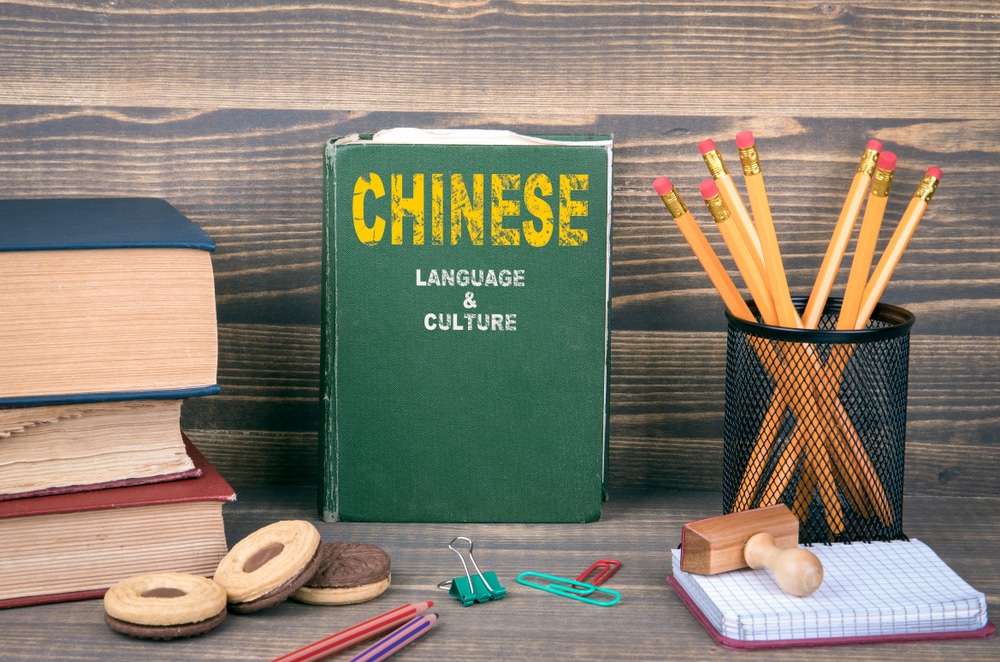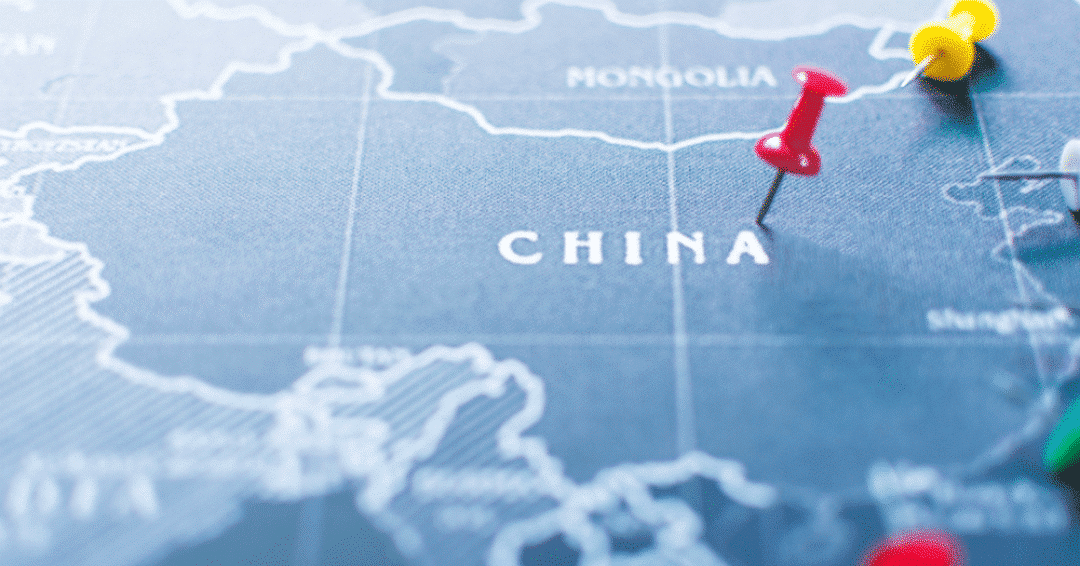Mandarin Chinese is the language with most native speakers in the world. Over 920 million people speak Mandarin as their mother tongue. In addition, there are 200 million second-language speakers.
While English has more speakers overall, it is important to mention that Mandarin Chinese is an interesting case. On one hand, the majority of Chinese speakers are native, while with English this is not the case. On the other hand, Mandarin speakers, located in one region.
Mandarin Chinese is an official language in 3 countries. Among them is the People’s Republic of China. It has a population of 1.5 billion people, making it the most populated country in the world.
Do you want to translate your content into Chinese?
Milestone helps you seamlessly translate content & localize your website, products, and services for more reach, better conversions, and greater sales.
An overview of the Chinese economy
China is the world’s second-largest economy. A socialist market economy regime got established in the 1990s.
According to the 2020 report by the National Bureau of Statistics, agriculture (8%), construction and manufacturing (38%) as well as services (54%) have the greatest proportions of the country’s GDP.
China’s economy has demonstrated its stability and resistance in times of crisis. In 2020 during the COVID-19 pandemic when most major world economies sunk into a heavy recession, China’s economy expanded by 2.3% compared to the previous year.
In 2020 China’s GDP, estimated at $15.66 trillion. The country’s GDP, expected to increase 8.5% by the end of 2021.
What’s more, the economic growth has directly influenced the population’s income, and now China is considered an upper-middle-income country. As a result, the buying behaviour of Chinese consumers has become more complex. Nowadays, price and function are not the main criteria when making a purchase.
Brand awareness has significantly increased its importance. In addition, more and more Chinese consumers believe that higher price is an indicator of better quality.
In 2020 purchasing power parity of China, estimated at 4.2 LCU per international dollar. As a comparison, China’s PPP in 2001 was 2.7 LCU per international dollar. The average annual growth rate is 2.3 %
This increase is visible in a number of statistics on Chinese consumers’ spending. For instance, in 2018 Chinese consumers spent $115 billion on luxury items. This is the equivalent of one-third of the global spending. This number is expected to double by 2025, despite the COVID-19 crisis.
Since 1978, China has been introducing new reforms to open up its economy to the world. This coupled with the constantly increasing number of Chinese internet users, China becomes an attractive opportunity for any business which wants to expand!
However, doing business in China is challenging due to the huge cultural differences and language barriers.
Don’t let this scare you. If done right, a successful expansion into China can do wonders for your business.
Have a look at our article on the cultural differences you need to know when doing business in China.
Hierarchy In Chinese Business Culture
This one is very important, so pay close attention!
China’s social structure is strictly hierarchical and formal. As a result, every participant is well-aware of their position in the social system and thus, should not cross boundaries.
This hierarchical structure of society is deeply ingrained into Chinese culture. This is a direct consequence of the political regime in the country as well as the huge influence of Confucian teaching on the national culture.
As a result, the rigid hierarchies of Chinese society got transmitted to the local business culture. Indeed, many Chinese companies are run by families or the government. So, having an organized social structure ensures order and effective workflow.
- Information flow – Not everyone has access to all the information in the company. In fact, the information flow follows the hierarchy. This means that only a few people have access to certain details. Thus, always make sure to acquire in advance the person you need to contact when you need information. Otherwise, you might waste a lot of time without any significant results.
- Communication – Due to the strict hierarchies, junior employees cannot speak directly to those on the top of the company. As a result, senior leaders often operate as mediators between those at the bottom and at the top of the hierarchy. Thus, always be aware of where you stand in the hierarchy and to whom you can speak directly.
- Lack of initiative – Those at the lower levels of the hierarchy, expected to only follow instructions. Thus, taking on the initiative regarding as an act of subordination if you belong to the bottom of the hierarchy.

Overall, you shouldn’t forget that no one challenges those who stand above them. Even if you disagree with those of a higher rank in the society or believe they are not fulfilling their duties properly, bite your tongue because one word can ruin your perspectives for a successful deal.
Also Read: How To Localize Your Website For China
Connect With Chinese Customers In Their Native Language
Milestone helps you seamlessly translate content & localize your website, products, and services for more reach, better conversions, and greater sales.
Chinese Business Etiquette
In order to do business in China, you have to understand local business etiquette. Indeed, when it comes to China the saying “When in Rome, behave like a Roman” is perfectly relevant.
You need to adhere to the social norms, otherwise, your deal might fall apart. To prevent this from happening, it is imperative to understand the significance of effective communication and its core components according to Chinese traditions and beliefs.

For Chinese businesspeople, socializing is an essential part of the negotiations. Surprisingly, socializing is even more important than the business deal itself.
You have to show your Chinese partners that you are genuinely interested in getting to know them more personally. Chinese people would never do business with a stranger. They have to take their time so that both sides get better acquainted with each other.
When socializing with your Chinese business partners, keep the following aspects in mind:
- Politeness – Always be polite and never rush things. Indeed, being blunt is the worst communication pattern you can opt for when doing business in China.
- Respect – Always show your respect towards others, regardless of whether they are your business partners, office clerks or even strangers. If you don’t behave respectfully towards the surrounding people, you risk being shunned by Chinese society.
This point is especially relevant when it comes to elderly people. Chinese people consider age as a sign of wisdom. Thus, the older a man is, the wiser they are believed to be. Chinese families are very attached to the elderly members and are showing their respect by taking care of them.
- Conflicts – Always make sure to avoid conflicts. Having a confrontation with somebody is deemed as showing a lack of respect and being impolite in Chinese culture. Nevertheless, Chinese people love bargaining, so don’t settle down with the first proposal.
- Teamwork – Chinese people believe teamwork can achieve anything. The focus on the individual is much less prominent, so never try to present yourself as the lone wolf. Alternatively, you will earn their respect by being a tolerant team player.
- Pride and honour – There is a general misunderstanding that Chinese people complete a business deal with a handshake rather than with a signature on a legal contract. The reason for this is considered to be their strong sense of honour and pride. In other words, they do not need contracts to keep their promise. Their pride and honour oblige them to do so.
However, this is not entirely true. Since the establishment of the Contract Law in 1999 having a contract is a must. Nevertheless, the notion of pride and honour has remained influential in Chinese business culture. In fact, Chinese people are often referred to as among the most reliable and loyal business partners.
- Tranquillity – When it comes to delivering a project on time, Chinese people take a more relaxed approach. For them having a deadline is simply a suggestion. They do not worry about details such as when a specific document is sent in. Still, being late for a meeting is considered disrespectful, so make sure to be punctual.
Also read: Business In The Middle East: Cultural Differences You Need to Know?
Tea and Business Meetings
Another important aspect of business etiquette in China is tea. As the herbal drink is a central part of Chinese culture, it has found its way into business meetings. It is usually the host that is preparing it. Then they offer the guests a cup of tea. Considering as an act of respect and politeness to accept and drink it or else, you will offend your potential business partner.
Overall, Chinese people, considered to be friendly and welcoming people. By following their traditions, you will simply prove to them that you are deserving of their time and respect.
Also read: 10 Marketing Translation Mistakes by Big Brands
Education and Innovation
Chinese parents are notorious for being willing to do anything in the name of their children’s education. Some buy apartments closer to the desired school. In this way, they increase their chances of their kid receiving a spot there. Others splurge on courses and lessons outside of school to help their children get higher scores in the class.

Generally, Chinese people are very pragmatic about how they spend their money. Consumerism is not as pervasive in their culture as in the Western world.
Indeed, Chinese families invest their money primarily in education and new gadgets.
China has long ago established itself as an innovative economy and as it seems, its nation truly values cutting edge technology! Electronic products are among the most frequently purchased goods by Chinese customers besides food and beverages. What’s more, a 2020 report by the National Bureau of Statistics claims that China has spent nearly $380 billion on innovation and development.
Overall, Chinese people value education and innovation and despite their pragmatic attitude towards money, are always willing to splurge on knowledge and novelty!
Also Read: Languages of East Asia [Complete Guide]
Eating Out Etiquette
Eating out etiquette is yet another divergent aspect from Chinese culture. There are a few very important rules you need to keep in mind in order to avoid embarrassing situations.
- The one who invites pays the bill – If you invite your Chinese business partners to a restaurant or a café, you are the one paying the bill. If you are the one who is invited, then you are expected to simply enjoy your meal.
- Don’t tip the staff – In China tipping the staff at a restaurant consider rude, so don’t even think about it.
- Drink warm water – This tradition considers to be influenced by the yin and yang philosophy. Chinese people believe that the warmth of the water (yang) can dispel the negative energy of the cold (yin). Thus, it is widely accepted to sip a glass of warm water while enjoying your meal.
- Do not hurry – In Chinese culture every meal, regardless if it is lunch or dinner, is very sophisticated and thus, can last up to 2 hours. Don’t try to hurry because you might offend your partners.
Generally, Chinese cuisine is one of the most diverse and old cuisines in the world. Besides landing a great deal while eating out, you can also enjoy yourself by trying out something new. Nevertheless, following the local traditions will inevitably leave your partners pleasantly surprised!
High Context Communication
In China giving direct and detailed instructions consider as impolite. As a result, often people in China start working on a project even before knowing all the details.
Undoubtedly, this can lead to confusion and mistakes. Nevertheless, making a mistake is more acceptable than following a guideline. In Chinese culture reading through a list of instructions or a checklist is considered a sign of lack of intelligence.
Still, if you are working on a dynamic project you can expect sudden changes of plan, make sure to inform your Chinese partners. They will appreciate it! And you can save both sides a lot of stress and frustration.
Last, but not least, the location and start date of your project is the first details you have to tackle. Once you have agreed upon these aspects, you can start recruiting people.
Why? In China, it is a common practice to publish fraudulent job postings. Thus, changing your location or starting date is a sign of fraud.
So, to ensure that you will start on time and have enough workers, settle all the needed details as early as possible. In this way, you can convince the candidates that this is a legitimate job and not a scam.
Also read: What Are The Main Languages Spoken In The Middle East
Culture Differences Between U.S. and China
China and the US are poles apart in most cultural aspects. While both of these countries are leading economies and have found their own ways towards modernization, their cultures are incredibly divergent.
The chart below creates a vivid image of the cultural systems of both nations:

On one hand, Chinese people are used to rigid social hierarchies, meaning that every individual has a spot in society. Moving up and down is rather impossible. In the US, on the contrary, everyone is free to become anything they want.
The USA is well-known for its loose, rather informal hierarchy. This belief is a central aspect of the American dream – anyone can become whatever they want, regardless of their origin, only if they work hard.
Also read: The Top Languages Spoken in California
This is in stark contrast with the rigid social structure in China where social classes are inherited, rather than earned through labour.
Social Structure in China
It is not surprising that China has kept its social structure for centuries, though. The Chinese nation has always had a strong sense of unity, of a whole. Thus, the focus on the individual is considerably less prominent in comparison to the US.
Chinese business culture, hugely influenced by the virtues of authority, solidarity, loyalty, good reputation, modesty and, last but not least, courtesy. All these values are intrinsic to oriental thinking and very far away from the US business mindset.
While in the US it is the individual that is most valued, in Chinese culture humbleness and teamwork are always well-appreciated.
Also Read: The Prevalence of the Spanish Language Within the US

Let’s have a look at the graph one more time. In terms of masculinity, which denotes the drive towards success and competition, both countries have similar scores.
However, the means of accomplishing success are quite different in both countries. In the US success is acquired by the individual, while in China the whole nation is involved.
Uncertainty avoidance refers to the attitude of a nation towards the unknown or the unpredictable nature of the future.
This aspect is also indicative of the acceptance of new ideas and innovative projects. In this aspect both countries score below average, meaning that they are rather risk-averse.
The next point, long-term orientation, is an interesting one! As we have discussed above, Chinese businesspeople never do business with strangers. They take their time to get to know the other person. Only then do they proceed with negotiating a deal.
As can be seen from the graph above, Chinese people seem to be oriented toward long-term commitment. In the US it is just the opposite. American people are known for trying to make the most out of a situation without considering any future potential.
The last point refers to the ability to control one’s desires. As we all know, Chinese people, considered very disciplined.
This, undoubtedly, is a direct consequence of their strict social structure.
Also read: Languages Spoken In Singapore [Updated 2022]
Business differences between America and china
American people, in comparison, are notorious for their huge amusement parks, shopping malls and tasty food. In the US many follow the motto “Work hard, play hard”.
In other words, one should work long hours in order to enjoy themselves as they wish afterwards.This work ethic is often reflected in their approach to financial management and investing. Americans tend to actively seek ways to grow their wealth, utilizing resources to gain knowledge and make informed decisions.
While this graph presents very clearly the cultural difference between the US and China, there are other divergent aspects in regard to business culture.
The most prominent one would be the general business atmosphere. Due to the intense competition, doing business in the US is a dynamic affair.
Chinese businesspeople have a more relaxed approach. Taking your time to get to know your partners, to enjoy a good meal is a must to land a good deal.
Here is an overview of the main divergent aspects between Chinese and American business cultures:
| THE US | CHINA | |
| COMMUNICATION WITH PARTNERS | impersonal, formal | personal |
| COMMUNICATION WITH EMPLOYEES | more personal, both formal and informal | impersonal, slow, formal |
| SOCIAL STRUCTURE | loose, rather informal | rigid hierarchies |
| DINING OUT WITH A CLIENT | seen as unethical | part of negotiating a deal |
| GUARANTEES | ensured through contracts | contracts play a role, but pride and honor are the decisive factors |
| DISAGREEING | seen as a normal part of negotiating a deal | seen as impolite |
Overall, the cultural differences between the US and China can be regarded as the two ends of a spectrum. Stark contrasts are clearly visible in the business etiquette of both cultures. However, regardless of their differences, tolerance and understanding could always bridge the two sides!
Culture and language in China
The official language in China is Mandarin Chinese. This dialect, spoken by 80% of the population which is an astonishing increase! In fact, in 2001 less than 55% of the nation were fluent in Mandarin.

For over two decades, the Chinese government has been actively investing in making Mandarin the most spoken Chinese dialect in the country.
Mandarin, established as the language of the government, education and the media.
According to the Chinese government, promoting Mandarin as the main dialect spoken in the country would be beneficial to the national sense of unity as well as the economic growth of the country.
Mandarin Chinese popularity is constantly growing. The effective strategy of the government to promote the dialect is achieving impressive results.
This makes localization and translation a necessity if you want to expand to the Chinese market.
In conclusion
Chinese business culture revolves around the intrinsic beliefs of integrity, pride, courtesy, friendship and progress.
Chinese people, generally very tradition-oriented and this is visible in many aspects of their lives, including business.
To ensure that you can build solid business relations with your Chinese partners, knowing their etiquette and habits is essential.
By demonstrating a good understanding of the Chinese business culture, you are treating them with the proper respect – and act that Chinese people would never take for granted!
Connect With Chinese Customers In Their Native Language
Milestone helps you seamlessly translate content & localize your website, products, and services for more reach, better conversions, and greater sales.




